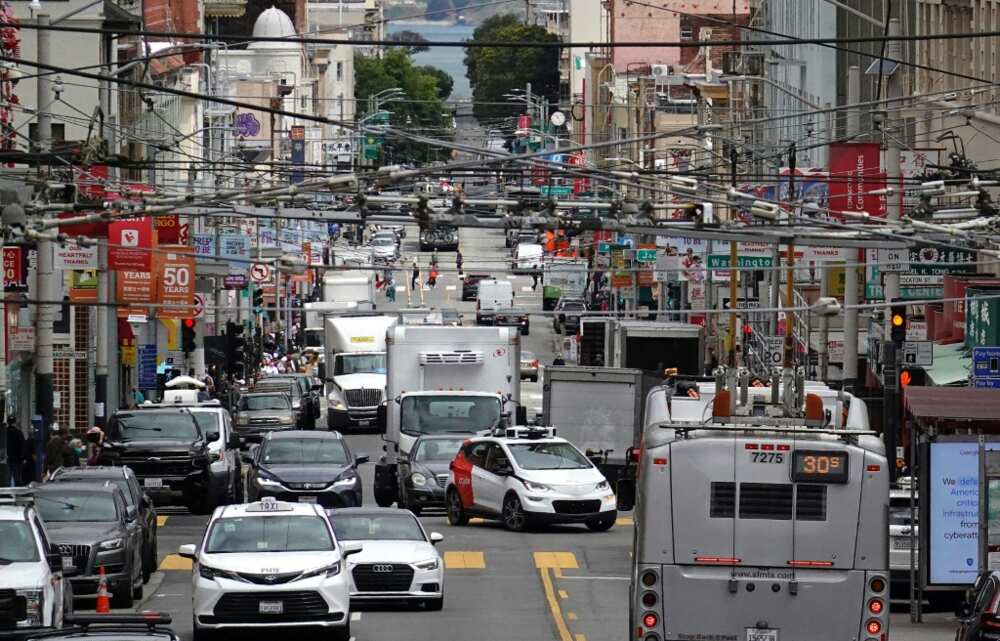
A self-driving car operated by US company Cruise ran over a woman after she was first knocked in front of it by a hit-and-run driver in San Francisco late Monday, video showed.
The woman was taken to a hospital and police are investigating the crash.
"We believe that another vehicle that was not an autonomous vehicle (AV) may have been initially involved in the collision, but the vehicle or driver were not present at the scene during our investigation," San Francisco officials told AFP.
Video presented to AFP by Cruise showed the self-driving car and another vehicle slightly ahead to its left moving through a intersection with a green light when the second car hit the woman.
"The initial impact was severe and launched the pedestrian directly in front of the AV," Cruise spokesperson Hannah Lindow told AFP, the description conforming to video captured by car cameras.
"The AV then braked aggressively to minimize the impact."
The Cruise AV stopped atop the woman, while the other car left the scene, video showed.
The severely injured woman was pinned beneath the AV when firefighters arrived, according to the San Francisco Fire Department.
Firefighters contacted the Cruise control center to make sure the vehicle was securely stopped then used heavy rescue tools to lift it and pull the woman out, department officials said in a release.
"Our heartfelt concern and focus is the wellbeing of the person who was injured and we are actively working with police to help identify the responsible driver," Lindlow said.
California authorities in August expanded driverless taxi services in San Francisco, giving the go ahead for operators Waymo and Cruise to compete with ride-share services and cabs.
The California Public Utilities Commission (CPUC) voted to let Waymo, a unit of Google-parent Alphabet, and General Motors-owned Cruise essentially run 24-hour robotaxi services in San Francisco.
Driverless cars were first introduced in San Francisco in 2014 with a mandatory human "safety driver" on board.
Four years later, California scrapped its requirement for a human driver to be in the car.
The CPUC session drew commenters from all sides of the issue, with some calling robotaxis unsafe menaces while others lauded them as solutions to everything from climate change to road rage.
Since their introduction, driverless cars have been involved in several problematic instances, such as becoming stuck in the middle of active roads, blocking bus lanes or even interfering in police or firefighter operations. Source: AFP